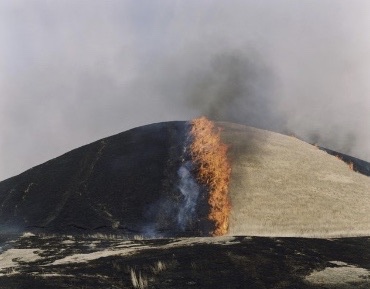The ties between French and American poetry are ancient and profound. In the introduction to his 1984 The Random House Book of XXth Century French Poetry, Paul Auster reminds his anglophone reader of the perennial contribution of the French language in general and French literature and poetry in particular to its British and later American counterparts, going back to John Gower and Chaucer. Focusing on the modern period, he claims that “American poetry of the past hundred years would be inconceivable without the French.” From the time of Baudelaire “modern British and American poets have continued to look to France…
Tag: Lyn Hejinian
Lyn Hejinian | From ‘Positions of the Sun’
The book pivots around the disorientation of the “aesthetics of minutiae, with their promise of infinitude”; a pointed and inconclusive protest against an “awareness of orders of magnitude that include atrocity, war, capitalism , and perhaps—though it may be mortality’s saving grade—death.”
Julian Murphet | “Wide as Targes Let Them Be,” or, How a Poem Is a Barricade
The commons are what capitalism has always been committed to enclosing within its apparatus of accumulation.1 On their violently vacated place arise the motley privacies of individual contracts, rents, factories, banks, police, and all the interrelated paraphernalia of capital’s machinery of valuation and surplus. The commons themselves cannot be valued—they are beyond, prior to, value. Common land, common air, common water; but also, horticulture, animal husbandry, grain storage. The collective practices developed over millennia to harness the resources of our planet, and maximize human potentiality, form a sometimes vicious, sometimes virtuous feedback loop with the commons and dynamize their…
riots and/or poetics [8/2019]
The exact link is uncertain. But we know the Nazis loved / America; Hitler yearned to paint a twin, // a green room where the dead are everywhere. / Asked Abraham before the flame, to the obedient tribe // What are these statues you cling to? // Why calico, why Spanish moss, why the crickets scream. / Confederates raise the undead everywhere. // In a segregated graveyard, no stone reads / private or public; the local jail is everywhere. // Before another body is buried, a window is broken. / A window was broken. The window is broken. // I look everywhere for Fanon’s knife, waiting for…




